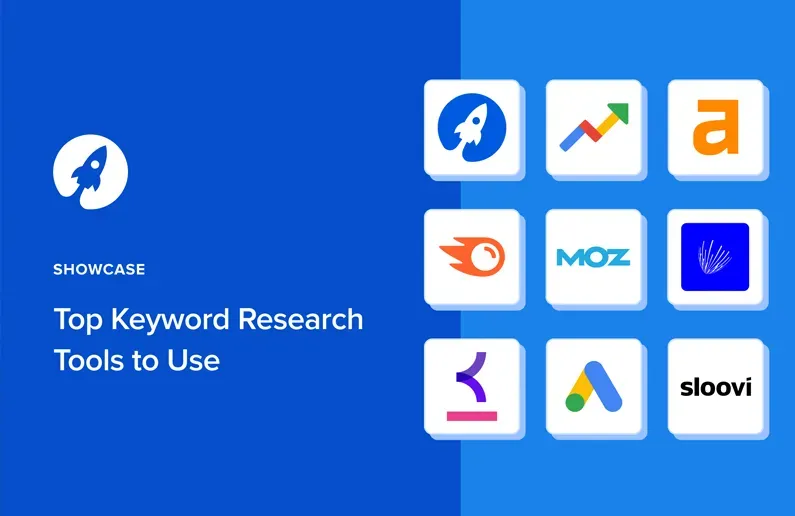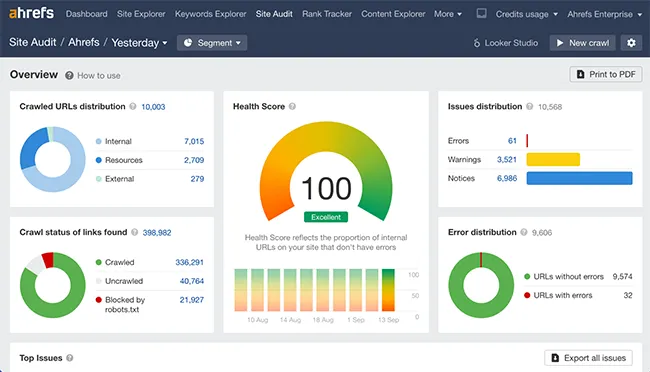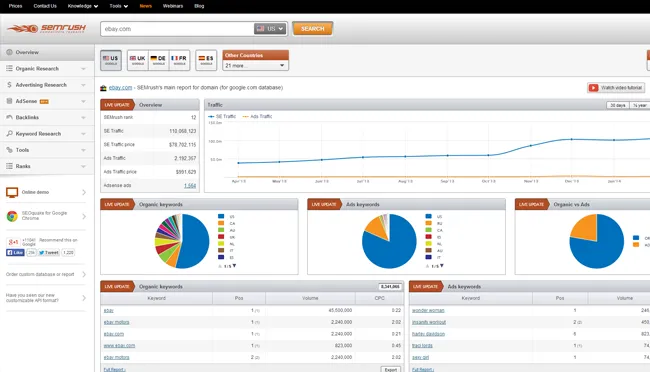
Introduction
Launching a new product or service can feel like stepping into uncharted territory, and one of the most essential components of ensuring its success is understanding keyword research. If you’ve ever wondered how to make your product or service shine in a crowded market, it all starts with the right keywords. But what exactly are keyword research and optimization tools, and how do they fit into a DIY product launch? Let’s dive into it.
Understanding Keyword Research and Its Role in DIY Launches
So, what is keyword research anyway? Simply put, it’s the process of discovering what your target audience is searching for online. This helps you ensure that your website or landing page appears in front of the right people when they search for something related to your product or service.
For a DIY product or service launch, keyword research is like the treasure map that guides potential customers straight to you. It tells you which phrases are worth targeting, what people are interested in, and helps you craft a message that connects with your audience. Done right, keyword research can amplify your visibility and make your product launch a success.
Benefits of Doing Keyword Research Yourself
You might be thinking, why should I bother with keyword research myself when I could just hire someone? Here’s why:
- Cost-Effectiveness: Hiring a professional SEO agency can be pricey, especially if you’re just starting. DIY keyword research gives you the advantage of cutting costs while learning the ins and outs of how customers find you.
- Deeper Understanding of Target Audience: By doing the research yourself, you learn exactly what your customers are searching for, which helps you tailor your message more effectively.
Popular Keyword Research Tools for DIY Launches
If you’re launching a product or service on your own, you need reliable tools to simplify the process. Luckily, there are plenty of keyword research tools to choose from. Let’s explore some of the most effective ones.
Google Keyword Planner
Features and Benefits: Google Keyword Planner is often a starting point for many, and for a good reason. It’s free, easy to use, and gives valuable insight into search volumes and competition levels for different keywords.
How to Use It for a Product/Service Launch: Type in the product or service you plan to launch, and Google Keyword Planner will show you the search volume for those keywords, as well as related keywords that may also be worth targeting.
Ahrefs Keyword Explorer
Overview of Features: Ahrefs Keyword Explorer is a powerful tool known for its extensive database and in-depth metrics. It provides valuable information on keyword difficulty, search volume, and even the number of clicks expected for a given keyword.
Best Practices for DIY Launches: When using Ahrefs for a product launch, look for keywords that strike a balance between search volume and difficulty. You don’t want to aim too high, but also want to make sure your chosen keywords can generate some real traffic.
SEMrush Keyword Magic Tool
Why SEMrush is a Favorite: SEMrush’s Keyword Magic Tool is incredibly intuitive and user-friendly. It’s particularly beneficial if you’re interested in exploring different keyword clusters or if you want to understand what keywords your competitors are using.
How to Maximize Its Potential: One of the best ways to utilize SEMrush is to look up your competitor’s domain and see what keywords they are targeting. This gives you an idea of where your product launch can fill the gaps they may have missed.
Moz Keyword Explorer
Features that Help for a DIY Approach: Moz Keyword Explorer is perfect for beginners, thanks to its easy-to-understand interface and helpful analysis metrics. It gives you a “Priority Score” which helps you determine which keywords will be the most valuable to target.
Moz’s Unique Benefits: Moz also offers valuable insight into the search intent of different keywords, helping you understand not only what users are searching for, but why.
Answer the Public for Keyword Ideas
Understanding User Questions and Concerns: Answer the Public is a unique tool that visualizes search queries related to your keyword, typically in the form of questions. It provides valuable insight into what your target audience is curious about.
How to Apply This to Your Launch: If your product is solving a problem, Answer the Public can help you understand the exact questions that people have. By targeting these questions in your content, you can effectively position your product as the perfect solution.
Long-Tail Pro for Long-Tail Keywords
The Value of Long-Tail Keywords: Long-tail keywords are longer, more specific phrases that often have lower search volumes but higher conversion rates. They are the hidden gems that help you target a more specific audience.
How Long-Tail Pro Can Boost Your Launch Strategy: With Long-Tail Pro, you can identify long-tail keywords that have a good balance between search volume and competition. This helps you create content that speaks directly to potential customers.
Keyword Surfer - A Free Chrome Extension
Free but Effective Options for Beginners: Keyword Surfer is a free Chrome extension that allows you to see search volume data directly within Google Search results.
How to Use Keyword Surfer Efficiently: Simply install the extension, type in your keywords, and you’ll see instant data like search volume, related terms, and even on-page content ideas---all without leaving your browser.
Ubersuggest by Neil Patel
Simplicity and Powerful Features: Ubersuggest is an excellent tool for beginners and intermediate users. It offers keyword suggestions, search volume data, and content ideas, all wrapped up in an easy-to-use package.
Getting Started with Ubersuggest: Start by typing in a keyword related to your product or service. Ubersuggest will provide you with a wealth of information on related keywords, search trends, and content ideas to help your product stand out.
Best Practices for Optimizing Your Keywords
How to Effectively Place Keywords: Once you’ve identified your keywords, the next step is to place them in key areas of your content. This includes titles, headings, meta descriptions, and throughout the content itself.
Using Keywords Without “Keyword Stuffing”: It’s important not to overdo it. Keyword stuffing not only looks unnatural but can also negatively impact your rankings. Aim for a balanced approach---make sure your keywords are there, but the content should always prioritize readability and value.
Keyword Optimization Tools
Surfer SEO for Optimization: Surfer SEO helps you optimize your content in real-time. It analyzes top-ranking pages for your keyword and gives you suggestions on keyword density, content length, and even suggested headings.
Yoast SEO for Content Optimization: If you’re using WordPress, Yoast SEO is a great tool for optimizing your keywords and making sure your content is well-structured. It’s especially helpful for ensuring that your meta descriptions, alt text, and other on-page elements are optimized.
The Role of Content in Keyword Strategy
Creating Engaging Content Around Your Chosen Keywords: Content is king, but the quality of the content is what makes it powerful. Write content that is engaging, informative, and that solves a problem for your audience.
Balancing Keywords and Readability: Remember, you’re writing for humans, not just for search engines. Make sure your content flows naturally, even while incorporating your keywords.
Tracking and Analyzing Your Keyword Performance
Tools to Track Success: Google Analytics, Ahrefs, etc.: It’s crucial to track the performance of your keywords. Google Analytics and Ahrefs provide data on where your traffic is coming from, which keywords are working, and what adjustments are necessary.
Making Necessary Adjustments to Improve Results: Keyword research and optimization is an ongoing process. Use the data you collect to refine your keywords, tweak your content, and continuously improve your SEO strategy.
Conclusion
Keyword research and optimization are at the core of any successful product or service launch. With the right tools, even someone new to SEO can craft a strategy that effectively puts their product in front of the right audience. By understanding your audience, leveraging the right keyword tools, and optimizing your content, you can confidently tackle the challenge of a DIY product launch.
FAQs
-
What is the best free keyword research tool for beginners?
Google Keyword Planner and Keyword Surfer are great free tools for beginners, providing essential data without any costs. -
How many keywords should I focus on for a product launch?
It’s best to start with 5-10 primary keywords that are directly related to your product, along with a handful of long-tail keywords to target specific audience needs. -
Can I do keyword research without paying for tools?
Absolutely! Tools like Google Keyword Planner, Keyword Surfer, and Answer the Public are all free and provide valuable insights. -
How can I find out what keywords my competitors are using?
Tools like Ahrefs and SEMrush allow you to analyze competitors’ websites to see which keywords they are ranking for, helping you plan your strategy accordingly. -
What is the importance of long-tail keywords in product launches?
Long-tail keywords are more specific and often less competitive, allowing you to reach a highly targeted audience that is closer to making a purchase.





